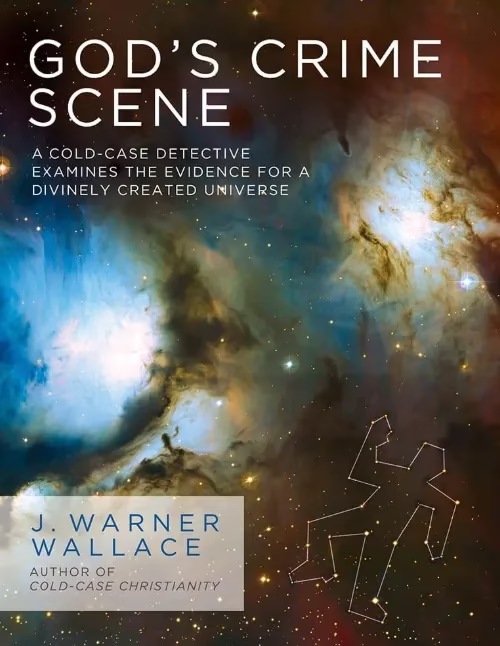Modern atheism often leans on scientific-sounding claims to dismiss the need for God in explaining the origin of the universe. One of the most popular arguments in recent years — made famous by the late theoretical physicist Stephen Hawking — states that:
“Because there is a law such as gravity, the universe can and will create itself from nothing.”
— Stephen Hawking, The Grand Design (2010)
To many, this sounds profound. To the discerning thinker, however — especially one grounded in logic and real truth (proven by historical and legal apologetics that affirm Christ is the Son of God and God created the universe as well we see in this article) — this claim collapses under scrutiny.
For skeptics, investigate the evidence yourself, as journalist-turned-apologist Lee Strobel encourages in The Case for Christ. Strobel’s journey from atheism to faith was driven by thorough investigation into the historical reliability of the resurrection of Christ — a case he presents in depth here: The Case for Christ – Lee Strobel.
The evidence for the resurrection of Christ is not only compelling but stands unmatched by any other event in ancient history.
Going back to the argument about how gravity created the universe, in this article we’ll explore why this argument fails from both scientific and philosophical standpoints, and how Christian apologist J. Warner Wallace offers a compelling brilliant refutation rooted in logic, observation, and a biblical worldview, one of my personal favorite expert apologetics author and renowned speaker — Cold Case Christianity.
What Did Stephen Hawking Mean?
Stephen Hawking argued that the law of gravity is so powerful and inevitable that it renders the need for a Creator unnecessary. In short:
- Gravity exists.
- Therefore, the universe could create itself.
- Therefore, no God is required.
But this statement is self-defeating. To illustrate why, let’s break it down point by point, and then examine how Wallace dismantles this idea.
1. What Is Gravity, Really?
Before addressing how gravity could or could not “create” the universe, we must understand what gravity actually is.
According to Einstein’s theory of General Relativity, gravity is not a “thing” floating in space. Instead:
Gravity is the curvature of space-time caused by the presence of mass and energy.
This means:
- Gravity is a property of the universe’s structure.
- It does not exist in isolation or independently of the universe.
- If space, time, and matter did not exist, gravity didn’t either.
So to say that “gravity created the universe” is like saying the structure of a house built the bricks it’s made of.
2. Wallace’s Response: Gravity Is Not Eternal
In his book God’s Crime Scene, J. Warner Wallace — a cold-case homicide detective turned Christian apologist — explains that such reasoning violates the very principles of causality and logic:
“Nothing comes from nothing. If the universe truly came from nothing, then you can’t say gravity caused it, because gravity is something, not nothing.”
— J. Warner Wallace, God’s Crime Scene
Wallace makes a critical point: Gravity cannot be the cause of the universe if it is part of the universe. That would be circular logic:
- Gravity exists because the universe exists.
- The universe exists because gravity exists.
That’s like saying, “My birth caused my mother to exist.”
3. Self-Creation Is Logically Impossible
Wallace also takes a philosophical approach to this issue. One of his strongest rebuttals is rooted in the law of non-contradiction. He explains:
“Self-creation is illogical. In order to create itself, something would have to already exist to bring itself into existence. This is impossible.”
So when Hawking says the universe created itself, Wallace would point out that this is like claiming:
- A painter painted himself.
- A computer programmed itself into existence.
These ideas don’t just defy science — they defy logic itself.
4. Scientific Definitions of ‘Nothing’ Are Misleading
Wallace further critiques the way some scientists use the word “nothing.”
In the scientific community, “nothing” often means:
- A quantum vacuum
- A fluctuating energy field
- A low-energy state that still has laws, particles, and properties
But in philosophy — and in actual reality — nothing means:
No matter. No energy. No laws. No space. No time. No potential. Absolute non-being.
So when Hawking says “the universe created itself from nothing,” he doesn’t mean actual nothing. He means something dressed up as nothing.
Wallace exposes this rhetorical bait-and-switch for what it is: a philosophical sleight of hand.
5. The Logical Conclusion: A Transcendent Creator
So what is the best explanation for the origin of the universe?
Wallace, echoing classical Christian apologetics, affirms that the cause of the universe must be:
This is not a force or law. This is God.
Wallace often draws from the Kalam Cosmological Argument:
- Whatever begins to exist has a cause.
- The universe began to exist.
- Therefore, the universe has a cause.
That cause is not gravity. That cause is God.
Final Thoughts
The claim that “gravity created the universe” may sound intellectually satisfying to those looking to avoid God, but it crumbles under the weight of its own contradictions. As Wallace makes clear, this kind of thinking:
- Violates logic
- Confuses definitions
- Assumes what it’s trying to prove
- Offers no true cause for the universe
Gravity is not eternal. It’s not divine. It’s not capable of self-initiation.
The universe had a beginning — and it had a Beginner.
As the Bible affirms:
“In the beginning God created the heavens and the earth.”
— Genesis 1:1 (NIV)
Don’t be fooled by complex-sounding arguments that defy reason. Truth is not afraid of scrutiny — and neither is the God who spoke the universe into being. If you would like to learn more, I highly recommend checking out Cold Case Christianity by J Warner Wallace, one of the masters in Christian Apologetics for sure!
Related
Discover more from Christ Reigns Media
Subscribe to get the latest posts sent to your email.

